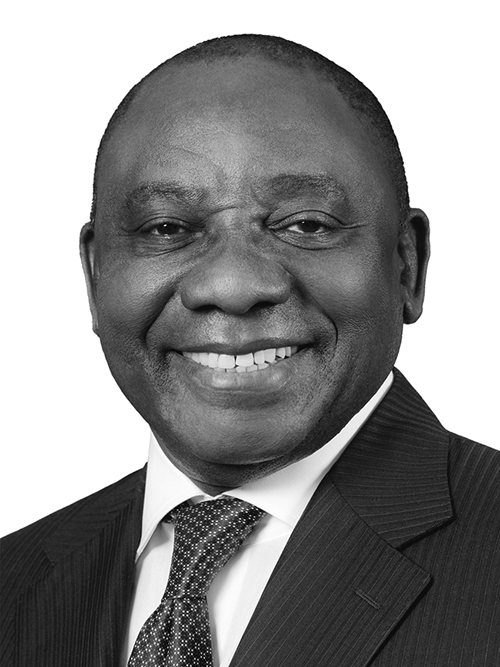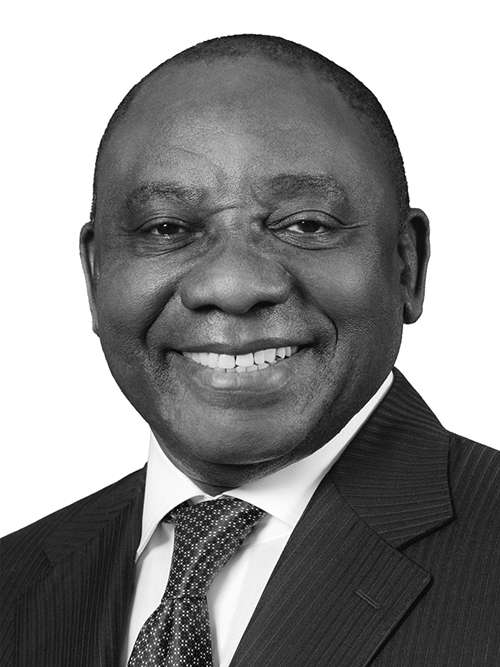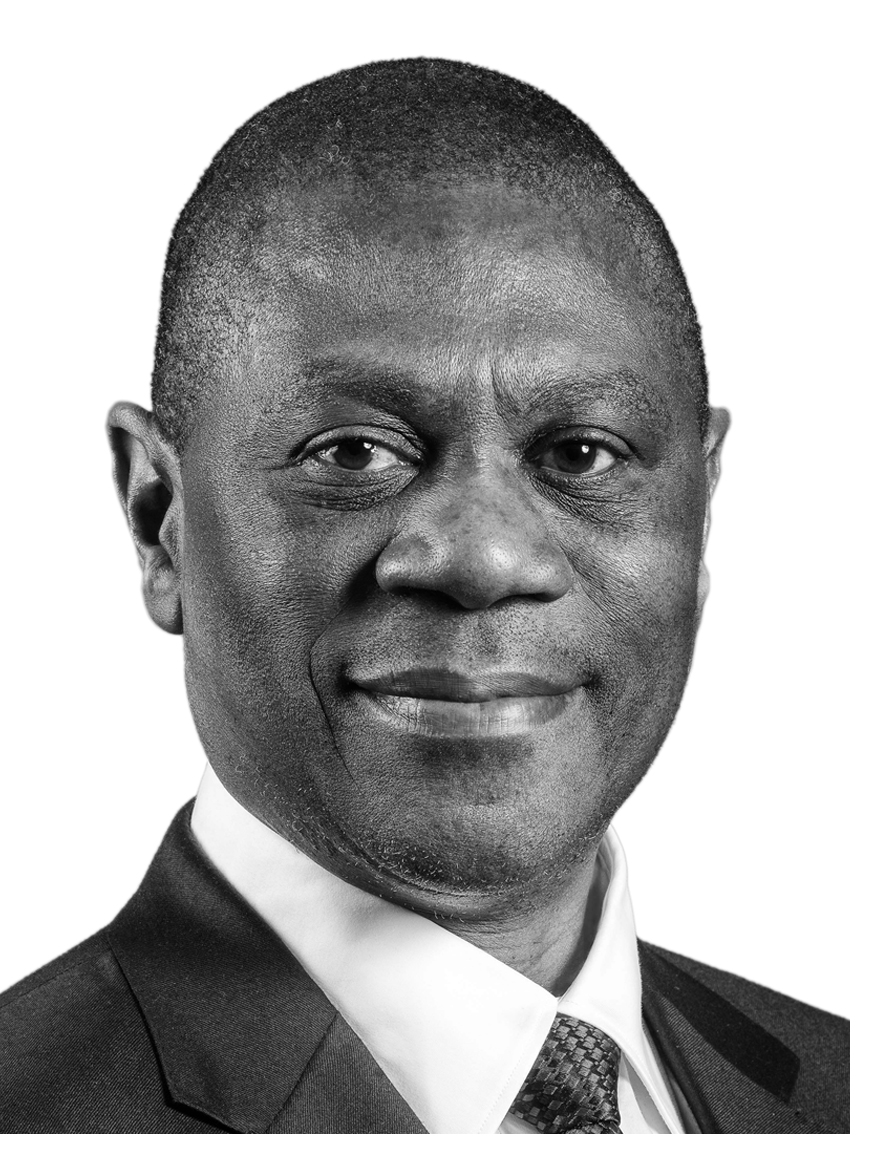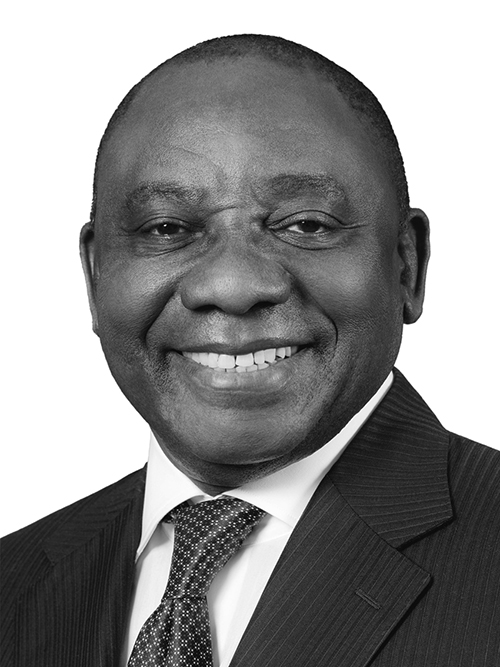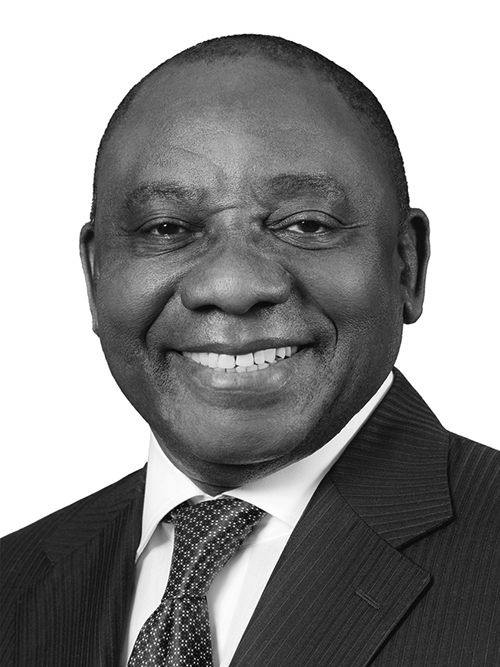Chairperson of the National House of Traditional and Khoi-San Leaders, Kgosi Seatlholo: Rapulana!
Deputy Chairperson of the National House of Traditional and Khoi-San Leaders, Nkosi Langa Mavuso: Ah! Zwelidumile,
Your Majesties, Kings and Queens,
Chairperson of the National Council of Provinces, Ms Refilwe Mtsweni-Tsipane,
Speaker of the National Assembly, Ms Thoko Didiza,
Minister of Cooperative Governance and Traditional Affairs, Mr Velenkosini Hlabisa,
Ministers and Deputy Ministers,
Premiers,
Chairpersons and Deputy Chairpersons of Provincial Houses of Traditional and Khoi-San Leaders,
The President and Deputy Presidents of Contralesa and Rolesa,
Representatives of Khoi and San Communities present,
Members of the Commission on Khoi-San Matters,
Leaders of political parties,
Representatives of Chapter 9 Institutions,
Directors-General and officials,
Distinguished guests,
Ladies and gentlemen.
It is my honour to address the National House of Traditional and Khoi-San Leaders on the tasks and priorities of our nation for the year ahead.
As I begin, I wish to honour the memories of traditional leaders that we have recently lost.
We remember with reverence Kgosi Bogosieng Mahura of Batlhaping ba ga Phuduhutswana in the Northern Cape, who passed away in December.
A few days ago, we laid to rest Hosi Dr Tinyiko Lwandlamuni N’wamitwa of the Valoyi Traditional Community in Limpopo.
These and other departed leaders leave behind towering legacies that we should nourish, sustain and build upon.
The institution of traditional leadership forms the sturdy roots that hold the great tree of our nation up. Traditional leadership is the institution that anchors us in history. It nourishes us with identity. It stabilises us when storms rage.
In many of the provinces across our country, traditional leaders remain enablers of social cohesion, mediators of conflict, guardians of land and transmitters of culture. Long before the formal architecture of the modern state, there were systems of cogent accountability rooted in consensus and community.
As the custodians of many of our cultures, customs and shared values that are the source of our nation’s strength, you hold the soil together, anchor the trunk and help us grow taller. Without strong roots, a nation cannot stand.
It is you who our people turn to in times of uncertainty and upheaval, and on whom they rely for guidance and wisdom that has been passed down through the ages and generations.
As such, traditional leaders are indispensable partners as we work to improve our economy and the lives of every South African man, woman and child.
In the State of the Nation Address two weeks ago I outlined the national priorities of the Government of National Unity for the year ahead.
I called on all of society – including traditional leaders – to marshal their energies, resources and talents towards our collective goals.
The country is in a much better position than it was a year ago. But our challenges are many and our difficulties are deeply embedded in our past.
Joblessness, especially among young people, is rife across the country. But its effects are most severe in rural communities.
With limited access to opportunities in villages and small towns, many young people migrate to urban centres in search of work.
This affects the local economy and weakens the social fabric. Young people become disconnected from customs and leadership structures.
The service delivery challenges in local government are felt particularly hard in rural areas.
Where roads are poorly maintained, farmers cannot transport their goods to towns. Schoolchildren and the elderly have to travel long distances to get to clinics and schools, costing them money that is already in scarce supply.
Rural areas are increasingly water-stressed. When the taps are dry, it doesn’t only affect households, but small-scale and communal farmers who rely on water to till the land, grow crops and sustain their livestock.
The effects of climate change are worst in rural areas, as we saw with the recent floods in parts of Limpopo, Mpumalanga and KwaZulu-Natal.
Extreme weather such as floods and droughts affect crop yields and the condition of livestock herds.
As communities rooted in land and tradition, there is much we should learn from traditional communities as we approach these challenges.
When we launched the District Development Model, we said that development plans must be informed by engagement with communities.
We have sought through this model to align planning and service delivery across the country’s districts and metros.
We continue to work with traditional leaders to gain an understanding of the conditions in their communities, of their specific needs and priorities, and to undertake development that is responsive to these realities.
One area where we are seeing impact is in our efforts to support youth development in rural communities is through public employment.
The Presidential Employment Stimulus has to date created over 2.5 million work and livelihood opportunities for young people, including in rural areas.
The Social Employment Fund continues to support agricultural interventions for smallholder farmers, including skills development, training in sustainable farming practices and access to markets.
The National Rural Youth Service Corps, commonly known as NARYSEC, is having a positive impact on the lives of rural youth.
Last year, many young people in rural areas graduated from this programme, having received training in agriculture, construction, IT, hospitality and other areas.
Agriculture is the lifeblood of rural communities.
In the State of the Nation Address, I outlined the steps we are taking to support farmers and improve agricultural productivity across the country.
We will continue to provide innovative funding to black producers, with the support of the Land Bank and commercial banks.
As we look to new markets for our agricultural exports, we want to ensure that a citrus farmer from Xitlakati village in Giyani and a poultry producer from Malangeni in Umdoni in KwaZulu-Natal have the same opportunities to expand their businesses as an established commercial farmer.
That is why this year we will be deploying 10,000 new agricultural extension officers across the country to provide technical support to both smallholder and commercial farmers.
We will also be consolidating the training funded by the AgriSETA to bring more young people into the agriculture sector.
The foot-and-mouth disease that is wreaking havoc on farming operations across the country has not left small-scale farmers untouched.
As we procure the vaccines we will use to vaccinate the national herd, we will ensure that communal and small-scale farmers have access to them.
The mineral riches beneath the soil of the lands under the stewardship of our traditional leaders must be harnessed for the benefit of the communities.
With some of the world’s largest reserves of critical minerals lying beneath our soil, government has dedicated funding to mapping our reserves and undertaking exploration.
Our progressive legal and regulatory frameworks have sought to ensure that mining activity does not result in environmental degradation, displacement or loss of livelihoods.
In some cases, rural communities have benefited from these developments, but in far too many instances they have not.
As we work to harness the potential of our critical minerals, government and traditional leaders must work together to ensure that these resources create jobs and businesses in the areas where they are mined.
We are determined that our minerals should be processed and beneficiated where they extracted, so that we export finished goods, not raw materials.
South Africa’s natural endowments must be harnessed for the benefit of those who live on and work the land.
The service delivery challenges at local government level are severely affecting communities under the stewardship of traditional leaders.
One of the greatest problems is water.
In the State of the Nation Address, I outlined our plans to invest more than R156 billion for water and sanitation infrastructure over the next three years.
Many projects to supply water to rural areas are either underway or about to commence.
From the Moretele North-Klipvoor Bulk Water Scheme in the North West and Limpopo, to the Ntabelanga Dam on the uMzimvubu River in the Eastern Cape, to the Mandlakazi Regional Bulk Water Scheme in KwaZulu-Natal, we are investing in securing water for generations to come.
We have embarked on a comprehensive review of the White Paper on Local Government.
This review is an opportunity for us to reimagine the architecture of our local government, including how it interfaces with and provides a role for the institution of traditional and Khoi-San leadership.
We are proposing a more structured cooperation between municipalities and traditional and Khoi-San leadership institutions.
We know that we can rely on the wise counsel and lived experiences of our traditional leaders to help in repositioning our local government to better serve the needs of our people.
As we seek to strengthen our local government system we know that the dual governance approach – of both municipal and traditional bodies – can create friction.
As we address the challenges that our local government structures are going through we need to establish structured engagement platforms with municipal leadership and ensure that our traditional leaders are involved in the reform process.
Our traditional leaders by definition are development-oriented.
As the custodians of the most valued asset of our people, which is land, they need to use it as a most strategic lever.
We all know that the land question should be addressed and that communal land which is central to rural development should be managed transparently through effective and equitable allocation systems.
These systems must prevent elite capture of scarce land that has economic value in areas such as mining and tourism or as commercial land.
We need to be clear that land-use and ownership rights should be fairly availed to our people as in households, as was the case in the past, to cooperatives, women and youth with a view of promoting productive land use for agriculture, agro-processing and eco-tourism.
We are pleased that the processing of the Traditional and Khoi-San Leadership Bill is proceeding at a good pace in preparation for its re-introduction in Parliament.
As you would recall, we previously reported that the Independent Commission on the Remuneration of Public Office Bearers had conducted a comprehensive review of the salaries and benefits of public office bearers, including traditional leaders.
Upon consideration of the report that the Commission had submitted to me, I found it necessary to refer it back to the Commission to provide further clarity on some critical aspects. We will be communicating any updates on this matter through the Ministry of Cooperative Governance and Traditional Affairs.
The establishment of the Kings and Queens Forum has been one of the most significant developments in recent years.
I have been advised of the successful engagements that the Forum had in December last year with a range of stakeholders and partners, where their Majesties discussed how they could best work together with other role players to advance the needs of the communities under their jurisdiction.
When we last met, South Africa had just begun its Presidency of the G20, which culminated in the G20 Leaders’ Summit in November last year.
We were gracious and worthy hosts and our remarkable hospitality is still being commended by world leaders.
We are grateful for the active role that traditional leaders played in the Disaster Risk Reduction Ministerial Working Group and the G20 Social Summit, and for the broader contribution to the overall success of our G20.
Let me also commend the House on the important work it has embarked on in partnership with government and other stakeholders. These include work with Habitat for Humanity, the Al-Imdaad Foundation, the National Heritage Council, the Hendrietta Bogopane-Zulu Foundation, and others.
These partnerships remind us: when we walk together, we walk far.
The House must be applauded on the launch of the Lenaka Memorial Lectures that honour and celebrate the sterling contributions of past and current traditional and Khoi-San leaders in development.
As we reflect on the work of those who have come before us, we must accept our responsibility to confront some of the challenges of the present.
We must act together to end the death and injury of our young men during customary initiation.
I am aware of Minister Hlabisa’s efforts in collaboration with traditional leaders to promote safe initiation practices.
Let us give these interventions our all so that we can restore this profound cultural practice to its proper place in the life of our people.
We must work together to end gender-based violence and femicide.
Government has classified GBVF as a national disaster so that we can better focus and coordinate the work we must do across government and across society.
As the custodians of our culture, heritage and values, traditional leaders must be at the forefront of the effort to end violence against women and children.
As leaders of communities, traditional leaders can take a firm stance against those attitudes and practices that enable such violence.
We are a nation that succeeds when we work together to find solutions.
We must take advantage of the opportunity presented by the National Dialogue to fix the challenges our country faces.
It is vital that traditional communities are involved in the dialogues that will take place across the country during the course of this year.
We are pleased that traditional and Khoi-San leaders are well represented in both the Eminent Persons Group and the National Dialogue Steering Committee.
Our great nation is rising once more from the ashes of a difficult past.
We have endured a global pandemic, civil unrest, devastating natural disasters, an energy crisis and other great challenges.
But we are making progress and we are recovering.
We must join hands and work together for the betterment of our villages and towns, for our communities, and for our country as a whole.
As our valued partners in governance, we will continue to rely on your guidance, your wisdom and your support.
And as our traditional leaders you must be a partner in shaping the future. As we open this gathering, let us reflect on a simple but enduring image I alluded to at the beginning:
A great tree does not grow separately from its roots.
It depends on them. And roots do not resist growth. They enable it
May this House continue to be a stabilising force in our democracy and national life.
As our traditional leaders you must remain custodians of dignity and cohesion.
And may you help lead the renewal of our rural economies, the empowerment of our youth, and the strengthening of our social fabric.
Because when the roots are strong, the nation stands firm.
I now declare this fourth session of the sixth House of Traditional and Khoi-San Leaders officially open.
I thank you.
Pula!



